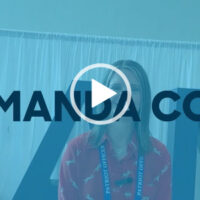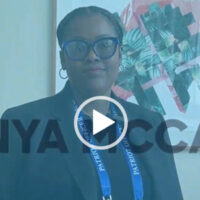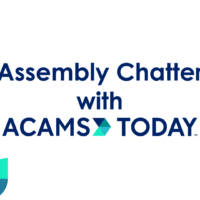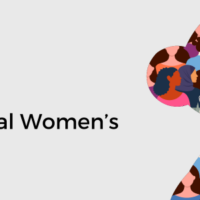
The ACAMS community would like to congratulate Jim Cox, Lauren Kohr, Jack Oskvarek and the New York Chapter for their achievements in the AML and financial crime prevention field.
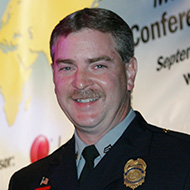
James A. Cox III
Second Lieutenant, Fairfax County Police Department
2016 Special Career Recognition Award
When the Fairfax County, Va., Police Department tapped James “Jim” A. Cox III, CAMS, for a new money laundering division in its narcotics unit, back in 2004, there was just one small issue.
“What did I know about money laundering law?” he asks. “Nothing. Absolutely nothing.”
To put it mildly, that has changed enormously. Cox, who is currently Supervisor Special Investigations/Narcotics of the Money Laundering Unit, is retiring—and the recipient of the 2016 ACAMS’ Special Career Recognition Award, which will be presented at the ACAMS 15th Annual AML & Financial Crime Conference in Las Vegas.
How did the ex-Marine, who always dreamed of a career in police work, find his way to ACAMS? Cox says it was his eventual realization that, at its heart, the illicit drug trade is a financial crime. That point was driven home after one particular raid of a ring some called the “Fairfax Sopranos.” “When we took them down we made a good arrest, but didn’t actually seize any money,” he says.
He adds: “If you raid a narcotics house, you’re going to find the dope. If you don’t find the dope you bring the dogs in and they’ll find the dope. The hard part is finding the money. That’s the only way you’re going to shut that organization down.”
Cox freely credits ACAMS for advancing his knowledge on money laundering law and, just as importantly, the methods by which criminals try to move illicit proceeds. “I would say that probably after two years of going to ACAMS and learning about the money laundering field, how to identify bank accounts and search for money, we got pretty good at it,” he says. So in 2006, he and four colleagues “studied our tails off and took the [CAMS] test.”
“To this day we have people say, ‘You passed? You’re cops and you passed?’” he says, sounding slightly bemused. He has been a regular attendee at the Las Vegas conference since.
ACAMS conferences, he adds, are valuable to law enforcement professionals because they provide unrivaled opportunity to network with financial crime professionals from the banking or regulatory sectors—and also learn about new trends and issues. “Everybody thinks money laundering is associated with drugs. That’s just one tentacle of the octopus.”
For instance, “my guys become experts in gambling,” which has been of great assistance in investigating illegal bookmaking and similar enterprises.
In addition, Cox is a big booster of across-the-aisle collaboration. An example is the Security Association of Financial Institutions (SAFI). With members from both the private and public sectors, it is something of an AML neighborhood watch program, with law enforcement notifying member banks of investigation targets, requesting they share if the suspect comes calling. “It’s worked out tremendously,” he says.
While he is not sure about post-retirement professional plans, he notes that the battle against drug trafficking—and its criminal proceeds—is clearly far from over. “Last year, heroin overdose deaths overtook auto accidents in the Commonwealth of Virginia,” he says.
As for his Special Career Recognition Award, he says: “When it’s all said and done, I’ll have 30 years here and it takes a toll on your body, especially in narcotics. When I was 25 years old in narcotics, you stayed up all night. I lived for it. Now it takes me two weeks to recover from it.”
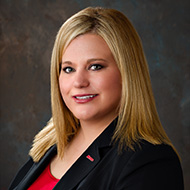
Lauren Kohr, CAMS-FCI
Senior manager, PenFed Credit Union
2016 ACAMS AML Professional of the Year
2016 ACAMS Today Article of the Year
If being awarded one of ACAMS’ top honors is good, it stands to reason that winning two is twice as nice.
Lauren Kohr, CAMS-FCI, should know. The senior manager of governance, risk and quality control at the financial intelligence unit of PenFed Credit Union (as in Pentagon) is 2016’s ACAMS AML Professional of the Year.
That alone is worth writing home about, as they say. Which perhaps would be appropriate since Kohr also authored ACAMS Today’s Article of the Year: “The Power of Peer Groups for Community Banks,” which ran in the September-November 2015 edition.
“I feel bad, taking awards from people,’’ she says, with a self-deprecating laugh, of her deserved embarrassment of riches.
While the honors are distinct, the dual accolades spring from a common source: Her passion to strengthen AML oversight at community banks and credit unions, by forging collaborative relationships among key stakeholders. She put the idea into action at her previous position, director of AML/BSA/OFAC at Metro Bank in Harrisburg, Pa., which despite a comparatively small $3 billion in assets, contended with large-market issues like human trafficking and drug smuggling.
“I had started a peer group in central Pennsylvania a few years ago, and it morphed into a wonderful peer group with regulators, law enforcement and AML/BSA officers,” she says.
Her approach: No matter your size, remember the big picture. “Regulatory compliance is important,” she says, “but we need to step back and say, why are we doing this? It’s to help law enforcement in combating terrorist financing, money laundering and financial crime.”
A couple of positive peer group outcomes included greater partnering with law enforcement and increased information sharing. Members of the peer group also worked together to focus on practical skills like improving suspicious activity report narratives--one of her top professional interests.
The initiative proved so successful that she decided to share her experiences in the ACAMS Today story that would win article of the year. “My point of the article is, why not share a point-by-point, step-by-step process?” she asks rhetorically. Although writing doesn’t come naturally to her, “this article was easy to write because I was talking about my two passions: working with law enforcement and those community banks.”
The ACAMS Today article clearly struck a positive nerve among her fellow financial professionals. “This article made me want to be in banking again, as it gave hope and a clear process to follow in building up a beneficial peer group,” says Sarah Beth Whetzel, CAMS, founder of Palmera Banking Solutions.
Kohr’s colleague Kyle Farina, CAMS, BSA /AML analyst in PenFed’s FIU, concurs. “This was a highly intriguing article and she should be commended for her excellent work in the community banking sector,” he says.
While the tributes are testament to her achievements, Kohr makes it clear she isn’t about to rest on her laurels. The reality is, community banks and credit unions still face tough AML challenges, particularly in areas like emerging technologies. “Small community banks and credit unions don’t really have the resources, infrastructure and institutional knowledge to master this digital age,” she says.
And the tone in her voice makes it clear that she plans to be part of the solution.
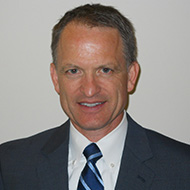
Jack Oskvarek, CAMS
Senior vice president/BSA executive director, Wintrust Financial
2016 Al Gillum ACAMS Volunteer of the Year
It would be understandable if, after a casual review of his resume, one mistakenly concluded that Jack Oskvarek, CAMS, is an ACAMS employee.
He has years of service on the ACAMS Education Task Force, which develops the programming for training webinars.
He founded the Chicago ACAMS chapter, which won Chapter of the Year in 2011, and continues to serve as chair.
He was a member of the CAMS-Audit review board from 2014-15.
He has twice served on ACAMS conference task forces, and was a speaker at the ACAMS moneylaundering.com Annual International AML & Financial Conference in Hollywood in both 2015 and 2016.
The reality, though, is that Oskvarek has a day job—and a pretty important one. He is senior vice president and BSA executive director of Wintrust Financial Corp., based in Rosemont, Ill.
But his unflagging voluntary efforts to support ACAMS, its programming and its members has earned him the honor of receiving the 2016 Al Gillum ACAMS Volunteer of the Year Award.
Oskvarek, whose leisurely pursuits include high-energy activities such as swimming, mountain biking and tennis, says he still remembers the surge of excitement when he first attended the ACAMS Florida conference years back.
“I sat in the audience, and I knew I wanted to be a part of that,” he recalls. “The excitement from all the vendors and the ACAMS staff as we left the last day—I’d never experienced something like that. I thought, ‘I’ve got to be a part of this.’”
Ironically, for all of his achievements in the compliance field, Oskvarek acknowledges it was not always a targeted profession. Working through a series of smaller institutions, “you’re allowed to wear many hats,” he says. “You have a greater propensity and likelihood that you’ll touch something that will take you down a particular career path.”
And while they may not be adrenaline-fueled sports, he finds AML and compliance to be intellectually and professionally thrilling. “I like the amount of risk that you have to try to navigate. Being on thin ice at times, it can be exciting,” says the dedicated Chicago Blackhawks fan. “You need to be on point and come through every time.”
That is a lesson that he drives home to all employees at Wintrust, a $24 billion holding company with 15 separately chartered banks. Quite simply, he says, strong compliance is good business.
“Here’s an interesting statistic that blew me away,” he says. “The FDIC reports banks earned $700 billion in profits from 2007 to 2014. But they paid $150 billion in fines, settlements and other penalties. It’s an amazing stat.”
Notwithstanding his latest honor, Oskvarek says he is actually judicious at what he volunteers for. But ACAMS, he says, was an easy first-round pick.
“ACAMS is something you can rely on for many kinds of learning, whether it’s webinars, live chats, white papers, conferences, seminars or chapter meetings,” he says. “There’s just one source after another. There’s nothing else quite like it.”
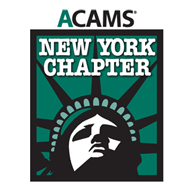
ACAMS New York Chapter
Year Founded: 2005
Co-Chairs: Meryl Lutsky, New York State Attorney General’s Office and Peter D. Wild, Wild AML Solutions LLC
2016 ACAMS Chapter of the Year
What are the necessary ingredients for a successful ACAMS chapter? Vasilios “Vas” Chrisos, CAMS, a principal in PwC’s financial crimes unit, thinks there are four.
“Obviously, you need a passionate membership base,” he says. “Secondly, you need an energized board.” Third, “you need to be addressing things that are relevant and innovative.” And finally, “you need connections to get great speakers.”
Chrisos, it should be noted, speaks from experience. He has served in capacities that include board member and co-chair of the ACAMS New York Chapter since its founding in 2005. And the chapter is also the recipient of the 2016 ACAMS Chapter of the Year.
Peter Wild, CAMS-Audit, a current chapter co-chair and independent consultant, concedes that location in this case does not hurt. “We’re so fortunate,” he says. “New York is such a banking center. There are people to help out and put on panels and that sort of thing.”
But perhaps the chapter’s greatest strength is not where it is based but, rather, the dedication of its directors and members. “The most important thing to me is to have a committed board, who are prepared to work and not just want the title on their resume,” Wild says.
Though still a few months shy of its 11th birthday, the New York Chapter was actually ACAMS’ first. “I think we take pride in being the oldest chapter in the ACAMS network,” says Chrisos.
And he hastens to point out that being based in the world’s leading financial center can present its own unique challenges. “Obviously, within the New York metro area we have a large base to draw members from,” he says. “But that also raises expectations, given the market we’re in.”
The record would indicate that the New York Chapter meets those expectations nicely. Last year, it held a gala to commemorate its 10th anniversary. It was so successful, that they held one this year as well.
“We were the first chapter to do job fairs,” adds Chrisos. They also hold CAMS study groups at night. And then there are the chapter events, where AML trends, policies and practices are examined—sometimes by people from outside the compliance field. “There are local influential people you may want (as speakers) but aren’t necessarily ACAMS members,” says Wild. “Maybe (someone with) the FBI or the Fed.” So the chapter has developed a VIP mailing list to ensure linkages to like-minded individuals and groups.
Demand for some of the chapter learning events has been—to put it mildly—strong. “We are normally oversubscribed,” says Wild. That is why the chapter has begun charging $20 for events; otherwise it runs the risk of having both empty seats and a waiting list, he says.
An added advantage of learning events, Wild adds, is that they provide a forum for developing material that might later land on bigger ACAMS stages in, say, Las Vegas or Hollywood. “Using a chapter event to try out a conference panel, I think is a good idea,” he says.
To be sure, all this takes time and effort. Besides the hours putting programs together, the board has a group call once a month, and a face-to-face meeting every quarter or so. But after more than a decade, Chrisos has no doubt it is time well spent. “It’s voluntary; we all have day jobs,” he says. “But if you’re passionate about the compliance and financial crime fields, there are just so many benefits.”







